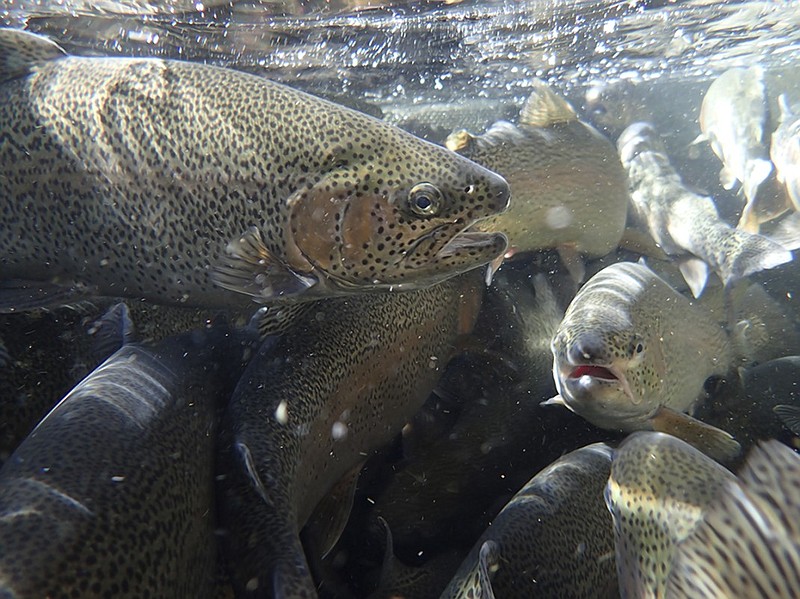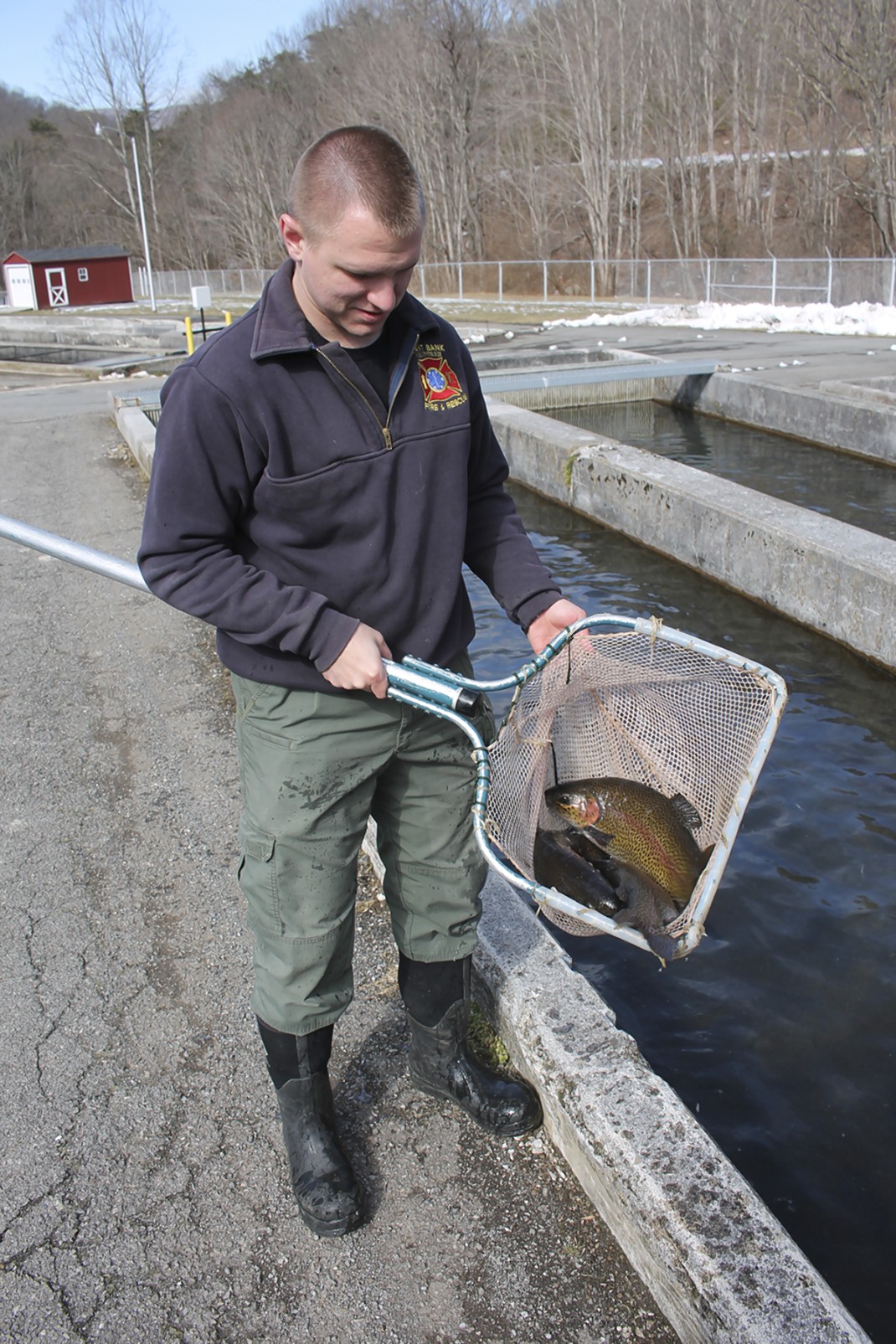Spring comes, and a young man's fancy turns to trout?
What is it with trout? Can any of you tell me? I hope you can. How can something as simple as a fish swimming in the water - minding his own business, just being a fish - cause so much flap and controversy? I have observed this phenomenon for almost 40 years, and I still do not understand it.
For those unfortunate souls out there who do not fish and know not of what I speak, let me explain. In the fishing world there are many different groups, cults and sects. Some are quite different from others, some are basically harmless and some are downright crazy. In the fishing world, what church you go to often depends on the fish you seek.
Largemouth bass anglers usually have a shrine located in their yard, and they are very devoted to it. The shrine is large, expensive and sometimes causes problems of a domestic nature. It is sad, but you often see this with different faiths in the same family. The fishermen sometimes refer to this shrine as a "bass boat," and at times they may actually pull it out of the yard, put it in the water and go fishing.
Muskie fishermen are equine of a completely different color. Muskies are sometimes known as the "fish of a thousand casts," meaning you fish for days before you catch one (or not). Muskie fishermen are the hermit, unsociable types of the fishing community. They know their chance for success is low, but they don't care - they go fishing anyway.
They are also known for fishing in some of the worst weather on the planet, reveling in their solitude and raw determination. Don't expect a Christmas card from a Muskie fisherman.
For pure consternation, discontent and a general sense of strife in the outdoor community, however, no fish can compete with the Salmonidae family, the trout. Why this is has always baffled me. I have my own theories, but I offer no definite answers.
The first premise you must understand is most states (east of the Mississippi River) have an extensive stocking program for trout. Fish and game agencies dump millions of tons of trout in public waters every year. No other fish we manage even comes close to the money spent or the attention given.
Raising millions of trout is costly, and in most states trout fishermen happily pay the license fees to do it. This whole enterprise of growing, feeding, transporting and throwing trout in the creek can be a big hairy monster. Working out the logistics for this endeavor might equal the planning of D-Day.
We see one of the first problems with simply getting the trout in the water. Trout are generally reared in state hatcheries, then taken by truck to various streams and lakes. The trucks are large, slow-moving vehicles with big water tanks. One of the biggest gripes you will hear is there are too many fishermen "following the stocking truck."
Well, yeah - the stocking is usually done in public streams along public roads. How do you keep anglers or anyone else from driving there?
You don't. The fish trucks are going to be on the road, and people are going to see them. (I don't think there has been a "cloaking device" invented for a fish truck.)
The AAFTF (Anglers Against Fish Truck Followers) loudly proclaims that people following the stocking truck soon catch all the trout and leave none for those who come later. I think that may be true to some extent, but many states have done before-and-after stocking studies on this topic, and I believe the general consensus is that there are a lot more fish still in the stream even after being fished for a few days than most fishermen believe.
Many anglers will tell you the solution to the perceived problem is to have a set trout season or close the stream temporarily. Trout would be stocked before the season or there would be a delay of one to two days between the stocking and legally fishing.
Some states already have a trout season, and if stocking the fish before the season begins works, I say more power to them. I have never thought closing the stream for two days, stocking the fish, then reopening the stream is such a great idea. First, it would be an enforcement nightmare. Second, the logistics of keeping up with which stream is closed on what day would not be practical.
I have heard these issues cussed and discussed a lot over the years, but I will always think back on what a trout biologist said in a meeting many years ago. He would always explain that you can have a closed season and you can close the stream temporarily, but what you are doing is taking away from the number of days people can fish.
The idea is to put the trout out there and give everyone the most fishing opportunities possible. Many of you will disagree with this, but it will give you something to fight about at the barbershop.
Please let me know what you think about any of the above trout problems, even if it's letting me know I am way off base. We are all in this together.
Enjoy the spring, go trout fishing, and for heaven's sakes, take a kid with you if you can. If you don't have a kid, go out and borrow one.
And if you know a Muskie fisherman, think about taking a hot meal over to his house - and maybe one of those self-improvement videos.
"The Trail Less Traveled" is written by Larry Case, who lives in Fayette County, W.Va., has been a devoted outdoorsman all of his life and is a contributing columnist for The Times Free Press. You can write to him at larryo case3@gmail.com.

